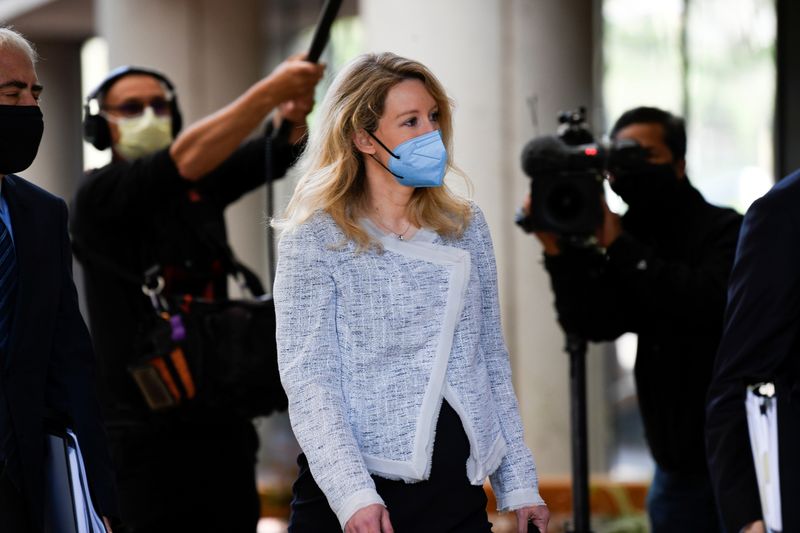(Reuters) - Theranos Inc founder Elizabeth Holmes has accused her former boyfriend, who was president of the blood-testing startup, of abusing her, court documents unsealed on Saturday showed, hinting at a possible defense strategy with jury selection in her fraud trial set to start next week.
In court filings submitted more than 18 months ago, Holmes' lawyers said they planned to present evidence that Ramesh "Sunny" Balwani abused her emotionally and psychologically in a relationship that spanned more than a decade. That includes the period when the company claimed its technology could enable a wide array of medical tests with a few drops of blood.
Theranos, which Holmes founded in 2003 at the age of 19, collapsed in March 2018 when she, Balwani and the $9 billion company were charged with fraud by U.S. regulators. Theranos had made Holmes, a Stanford University dropout, a Silicon Valley star.
In the filings Holmes' lawyers argued that the alleged "intimate partner abuse" was relevant to the question of whether she knew that financial information provided to investors and others was false. Holmes intends to blame Balwani, alleging he exerted controlled over her through the abusive relationship, the filings indicate.
Balwani, whose case is being handled separately, has denied the allegations.
"Mr. Balwani unequivocally denies that he engaged in any abuse at any time," his lawyers wrote in a December 2019 filing.
Holmes and Balwani have both pleaded not guilty to charges that they defrauded investors, doctors and patients by falsely claiming Theranos could revolutionize medical lab testing with its technology.
Lawyers at Williams & Connolly for Holmes and attorneys for Balwani at Orrick Herrington & Sutcliffe could not immediately be reached for comment.
Assistant U.S. Attorney Jeff Schenk, the lead prosecutor on the case, did not respond to an email seeking comment.

Holmes' lawyers had previously flagged they would make her mental health an issue in the case. Last year they said Mindy Mechanic, a California State University at Fullerton professor specializing in psychosocial consequences of violence, trauma and victimization, would offer expert testimony at trial.
The case is United States v. Holmes, U.S. District Court, Northern District of California, No. 18-cr-00258.